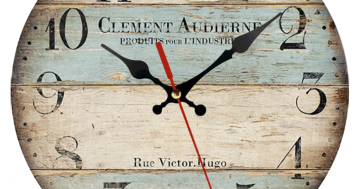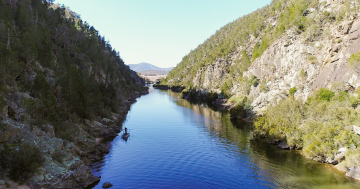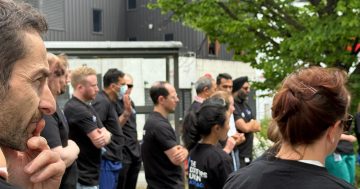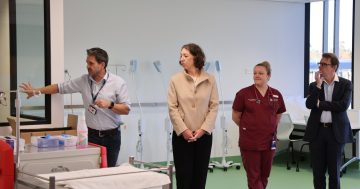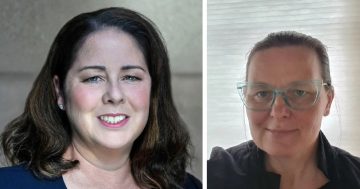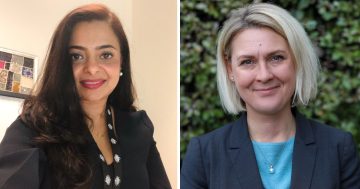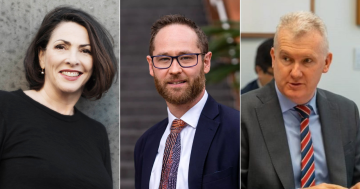 1. This week 10 years ago, the first report on COAG’s $3.3 billion National Partnership on Improving Public Hospitals found no State or Territory had met all its targets for improving timely care in elective surgery and emergency departments.
1. This week 10 years ago, the first report on COAG’s $3.3 billion National Partnership on Improving Public Hospitals found no State or Territory had met all its targets for improving timely care in elective surgery and emergency departments.
COAG Reform Council Chairman, John Brumby said only the ACT had achieved all nine elective surgery targets in the agreement, and Western Australia was the only State to achieve its emergency department targets.
“We have an increasing chronic disease burden, a growing and ageing population, and rising costs of services and health technologies — all factors that challenge governments in achieving targets under this National Partnership Agreement,” Mr Brumby said.
2. The NSW Bureau of Crime Statistics and Research (BOCSAR) reported a fall in assaults on licensed premises, robberies without firearms, break and enter from non-dwellings and motor vehicle thefts, while most other categories of crime (including non-fatal shootings) were stable, but fraud and domestic assault were up.
BOCSAR Director, Dr Don Weatherburn said the significant uptrend in fraud for NSW was partly linked to service station drive-offs but was also coming from other businesses such as supermarkets, electronics stores, licensed premises, restaurants and public transport.
“It is difficult to tell whether the growth in arrests for drug offences reflects increased illegal drug use, increased drug law enforcement or some combination of the two,” Dr Weatherburn said.
3. NSW signed a Memorandum of Understanding (MoU) to help strengthen its relationship with China’s capital city, Beijing.
China was the State’s largest trading partner, with bilateral merchandise trade valued at $26.8 billion in 2011–12 — an increase of 75 per cent from five years earlier.
NSW Premier, Barry O’Farrell signed the MoU with the Mayor of Beijing, Wang Anshun, saying the MoU advanced the NSW–Beijing Sister State agreement signed in 2012 and identified areas of mutually beneficial cooperation.
“Having such an agreement with the capital city of the world’s second-largest economy can help NSW to achieve the aims set out in our recently released International Engagement Strategy,” Mr O’Farrell said.
4. The NSW National Parks and Wildlife Service (NPWS) provided Australian Museum researchers with 27 specimens of native species that had died on roads or through other misadventure.
Biodiversity Officer for NPWS, Doug Beckers said the specimens included threatened species such as spotted-tailed quolls, powerful owls and New Holland mice, which would become part of the Museum’s research collections, with data recording the exact location where the animal was found, the date and the cause of death, if known.
Spokesperson for the Australian Museum, Dr Sandy Ingleby said the specimens would be used primarily for research purposes by both Australian and international researchers and some could also be used in exhibitions or other public education programs.
5. The Victorian Government signed the Inter-Governmental Agreement (IGA) for the Murray–Darling Basin Plan’s implementation and an associated funding agreement, with Minister for Water, Peter Walsh saying the IGA settled the responsibilities and costs of putting the Basin Plan into action.
Mr Walsh said Victoria had always maintained that a healthy Basin could be achieved alongside sustainable, productive and modern irrigation, and was committed to supporting regional communities and the industries on which they relied.
Mr Walsh said the Victorian Government also reinforced support for previous Commonwealth commitments that would help ensure future water recovery did not undermine investment in irrigated agriculture, and the communities that relied on food and fibre production.
6. And a decade ago, Dr Lesley van Schoubroeck was appointed Queensland’s first Mental Health Commissioner to help revitalise frontline services for families.
Health Minister, Lawrence Springborg said Dr van Schoubroeck, who established the WA Mental Health Commission, would oversee improvements to the system that supported people living with a mental illness or who misused substances, as well as their families, carers and support networks, and would implement strategies to promote mental health and wellbeing, as well as prevention and early intervention measures across the State.
Mr Springborg said the Commission would drive reform to improve mental health and minimise the harmful impacts of substance abuse in the Queensland community.


